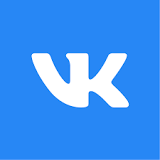VKontakte (VK), often referred to as the “Russian Facebook,” was founded by Pavel Durov in 2006. The platform was created as a social networking site aimed at connecting users in Russia and other Russian-speaking countries. VK quickly became the largest social media platform in Russia, offering a wide range of features that catered to a growing online community.
Background and Motivation
Pavel Durov was inspired by the success of Facebook in the United States and saw an opportunity to create a similar platform tailored to the Russian market. At the time, there was no dominant social networking site in Russia, and Durov recognized the potential to fill that gap. He was also motivated by a desire to create a platform that promoted freedom of expression and open communication, values that would later play a significant role in his development of Telegram.
Launch and Early Growth
VKontakte was officially launched on October 10, 2006. The platform’s initial user base consisted primarily of university students, similar to how Facebook started. VK’s design and functionality closely mirrored Facebook, which contributed to its rapid adoption. Users could create profiles, share photos and videos, post status updates, and join groups, among other features.
One of the key factors in VK’s early success was its focus on the Russian language and the specific needs of Russian-speaking users. The platform also allowed for easy content sharing, including music and videos, which made it particularly popular among young people.
Expansion and Popularity
VK’s popularity skyrocketed within a few years of its launch. By 2008, it had overtaken Odnoklassniki, another Russian social network, to become the most visited website in Russia. VK’s user base grew exponentially, and the platform began to expand its reach to other countries in the Commonwealth of Independent States (CIS) and beyond.
Durov’s commitment to user freedom was evident in VK’s policies, which were relatively lenient compared to other platforms. VK became a hub for sharing a wide variety of content, including pirated music and movies, which further fueled its growth. This open approach, however, also attracted the attention of authorities and copyright holders, leading to legal challenges.
Challenges and Durov’s Departure
As VK grew in influence, it also attracted increasing scrutiny from the Russian government. In 2011 and 2012, VK was used by activists to organize protests against the government, which led to pressure on Durov to comply with government demands. Durov resisted these pressures, refusing to hand over user data or censor content. This defiance made him a target, and he faced mounting pressure from both government authorities and investors who wanted more control over the platform.
In 2014, amid escalating tensions, Pavel Durov was forced to sell his stake in VK and step down as CEO. This marked the end of his involvement with the platform. VK was eventually taken over by Mail.Ru Group (now VK Company Limited), a Russian internet company, which further aligned the platform with government interests.
Legacy and Impact
Despite the challenges, VKontakte remains one of the most popular social networking sites in Russia and continues to be a major player in the global social media landscape. Pavel Durov’s experience with VK significantly shaped his views on privacy and freedom of speech, leading him to create Telegram as a more secure and independent platform.
VK’s legacy is a testament to Durov’s vision and entrepreneurial spirit, as well as the complex relationship between technology, freedom, and government control in the digital age.



